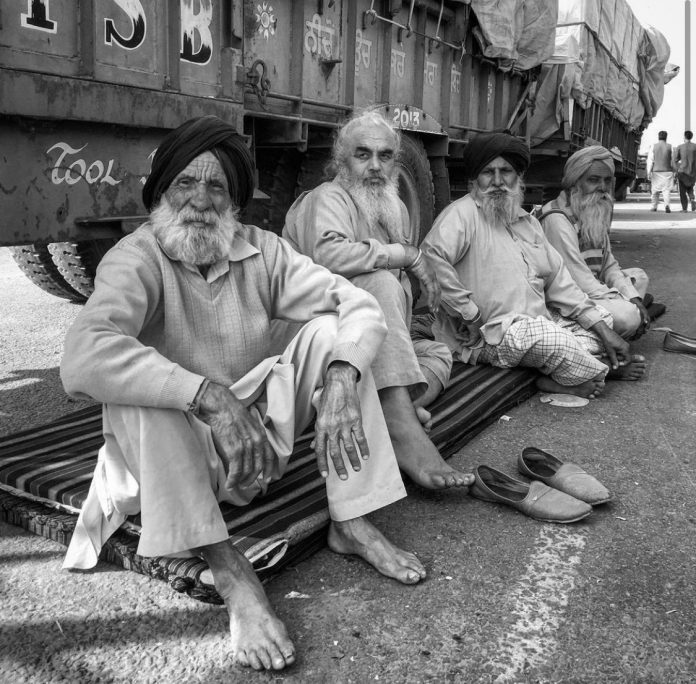
Every year India observes 23 March as the martyrdom day of Shahid Bhagat Singh, Sukhdev and Rajguru, and on 27 February India observes the martyrdom day of Chandra Shekhar Azad. However we often forget on March 25 to observe the martyrdom day of Shahid Ganesh Shankar Vidyarthi who was like a mentor for all the revolutionaries of this group. Another key significance of Ganesh Shankar Vidyarthi, who was also one of the most senior journalists of the country as well as one of the most respected leaders of the Congress Party, was that he was a very important bridge between the mainstream Congress Party and the revolutionaries.
At a time when India is passing through very difficult times on the one hand and at the same time there is a resurgence of people’s movements and voices at several levels, it will be very inspiring and useful to observe the entire month from February 26 to March 25 as Martyrs’ Month and to remember the essential messages of all these martyrs and their close colleagues.
A great source of inspiration is that all these freedom fighters were working in the most difficult circumstances and yet they were able to achieve great success in their struggle against the most powerful imperialist force of those times. The difficulties which they faced in achieving their objectives appeared to be almost insurmountable. Bhagat Singh was in jail during the last two years of his life where he and his colleagues had to suffer torture and hunger. Azad was the one senior revolutionary out of jail but the police was after him all the time. Vidyarthi used to have one foot in his newspaper office and the other foot in prison, and yet he also had the responsibility of coordinating freedom movement activities in some of the most densely populated and important parts of the country.
Despite these obstacles these martyrs succeeded valiantly in their objective of inspiring the masses greatly, radicalizing the entire politics to such an extent that the Congress was pushed towards moving in the direction of complete independence sooner than some of its own leaders had anticipated.
Today we speak of our own difficulties and no doubt all those who aspire for truly honest work for the nation and its people are facing more and more difficulties. But just look at the great success achieved by these martyrs in the middle of so many difficulties and we will start feeling more confidence in our success and we will have a lot of inspiration for facing these difficulties.
In addition we should grasp the essential message of these martyrs very carefully. Bhagat Singh and his close colleagues made it very clear in several statements that they did not believe in indiscriminate violence and greatly valued human life. Bhagat Singh wrote very clearly, ‘ non-violence as a policy indispensable for all mass movements’ while force is justifiable only ‘ when resorted to as a matter of terrible necessity’. During their trial, Bhagat Singh and Batukeshwar Dutt said in a joint statement, ‘ We hold human life sacred beyond words’. This statement was supported by their conduct of carefully using bombs in such a way that loss of human life would not be caused and then handing over their revolvers to the police in the Assembly.
In another statement Bhagat Singh expressed greatest admiration for world level fraternity based on equality. A world free of exploitation and injustice was needed, he said, to create conditions for ending the causes of war and durable peace based on justice. The ultimate aim is peace only, but this should be peace based on justice and equality, and to bring justice and equality we have to struggle against imperialism and capitalism.
The relevance of this great emphasis on peace based on equality and justice is even more today when we have increasing inequality and crony-capitalism based on increasing dominance of billionaires on the one hand and very serious environmental problems as well as accumulation of weapons of mass destruction amounting to survival crisis at world level on the other hand.
Bhagat Singh and his fellow-revolutionaries also gave a very important message of peace in another context of opposing all sectarian, communal and inter-faith violence . They along with their organizations like Naujavan Sabha were always active for communal harmony. This message again has become increasingly relevant today. It is important to remember that Ganesh Shankar Vidyarthi achieved martyrdom in the course of his valiant efforts to check communal violence in Kanpur.
Bhagat Singh also gave high importance to ending all exploitation and discrimination practiced against dalits to bring justice and equality in Indian society.
In his message to youth Bhagat Singh emphasized that the cult of the gun should be avoided and instead importance should be given to working among workers and farmers on longer-term basis with the wider aim of creating a society based on justice which is free from exploitation. Working among farmers and workers for bringing justice to them and for their unity is very important for creating a society based on justice. Driving away British rule was just the first stage of this struggle whose ultimate aim is to create a society based on justice and equality and for this the unity of workers and farmers is very important. For this purpose the establishment of a socialist society is very important and hence the name of the foremost organization of revolutionaries was changed from the Hindustani Republic Association to the Hindustani Socialist Republican Association.
As we observe Martyrs’ Month it will be very important to remember these durable and most important messages of justice, equality, unity of farmers and workers, communal harmony and peace.
Bharat Dogra is a senior journalist and author who has been close to people’s movements. Prof. Jagmohan Singh is Chairperson of Shahid Bhagat Singh Creativity Center and Chairperson of All India Forum for Right to Education.He is also nephew of Shahid Bhagat Singh.












